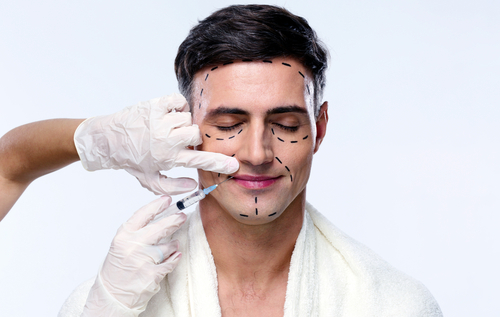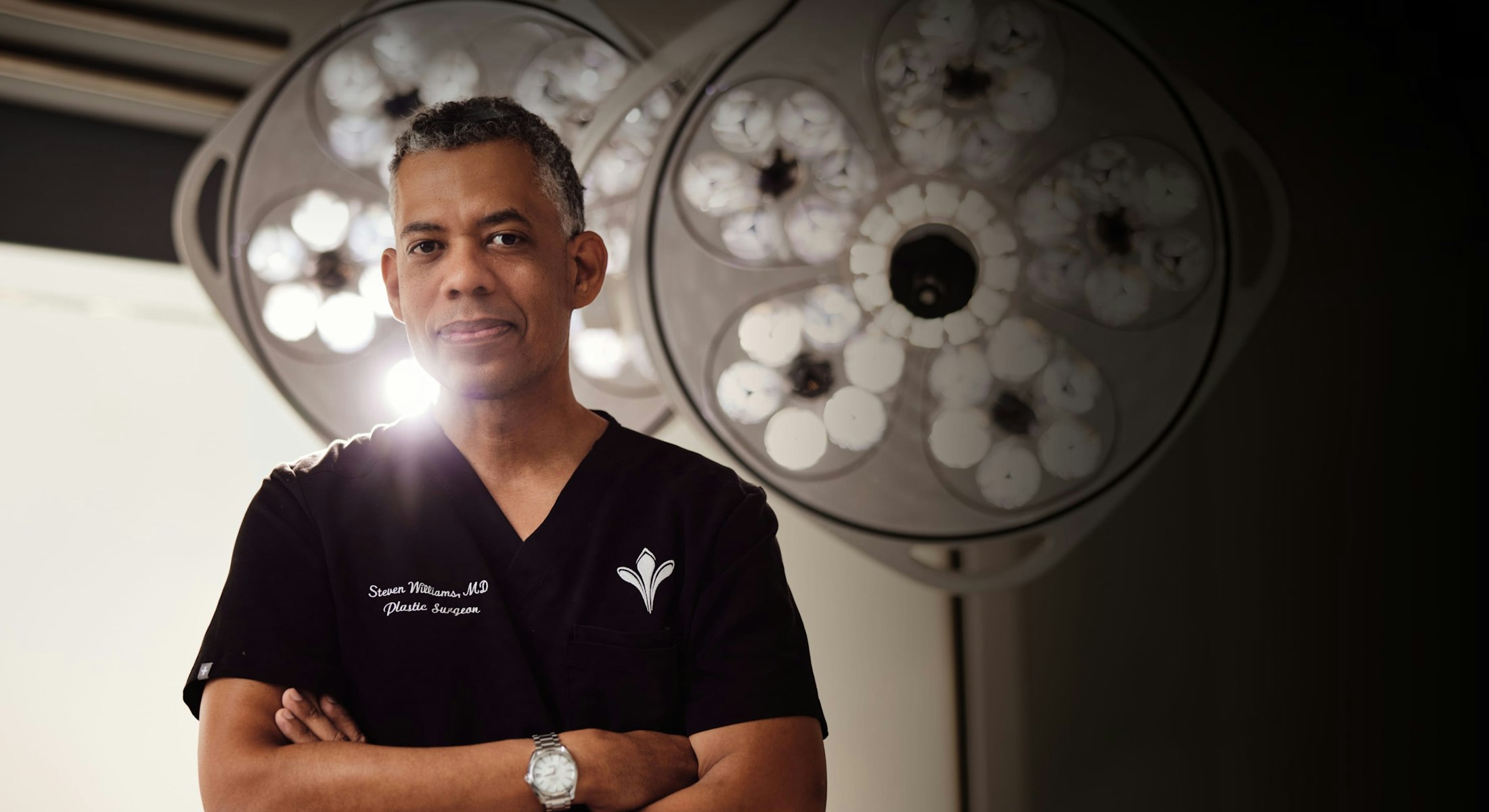Exploring the Emotional and Social Factors That Drive People to Consider Plastic Surgery as a Means of Renovation
The decision to pursue cosmetic surgery typically extends past mere visual appeals, linking with emotional and social dynamics that merit comprehensive examination. Variables such as self-worth, pervasive social elegance requirements, and the prevalent influence of social media merge to form private motivations for medical enhancement.
The Role of Self-Esteem
Self-worth considerably affects a person's decision to seek cosmetic surgical treatment. People with reduced self-esteem frequently perceive themselves in an adverse light, leading to feelings of inadequacy regarding their physical look.

Ultimately, the role of self-esteem in the decision-making procedure relating to cosmetic surgery highlights the complicated interplay in between body picture, personal satisfaction, and psychological health and wellness. Understanding this partnership is vital for healthcare specialists to guarantee that people are making notified choices rooted in reasonable assumptions and emotional health.
Societal Appeal Standards
Influenced by prevalent media portrayals and social narratives, societal elegance requirements play an important role fit people' understandings of their own bodies. These criteria are commonly characterized by an idyllic type of elegance that highlights characteristics such as youthfulness, proportion, and slimness. As these suitables are bolstered through different channels, including movie, television, and advertising and marketing, individuals often internalize these messages, leading to discontentment with their natural appearance.
The ramifications of these societal norms prolong beyond aesthetic preferences; they can affect self-esteem, mental health, and social relationships. People that regard themselves as dropping brief of these requirements may experience feelings of inadequacy, prompting a desire for plastic surgery as a means of achieving social authorization. This quest is commonly sustained by the belief that complying with these suitables will boost not just physical appearance but additionally social standing and individual satisfaction.

Influence of Social Media Site
The impact of social elegance requirements is more amplified by the surge of social networks systems, where curated photos and idealized representations of elegance are ubiquitous. Users are frequently subjected to filteringed system and modified pictures, which typically show unattainable physical attributes. This exposure grows a society of contrast, leading people to assess their own appearance against these usually unrealistic standards.
Social media site influencers and stars often advertise aesthetic procedures, stabilizing the concept that medical enhancements are a viable ways for attaining societal ideals (plastic surgery rancho cucamonga). The exposure of these improvements can find out this here create an assumption that undergoing cosmetic surgical procedure is a basic method, thereby affecting individuals to take into consideration comparable interventions as a path to enhanced self-confidence and social acceptance
Furthermore, the interactive nature of social networks permits immediate feedback via sort and remarks, additionally strengthening the desire to satisfy prominent appeal criteria. Such interactions can intensify sensations of insufficiency and drive individuals towards plastic surgery as a method of acquiring recognition. Eventually, social networks plays a crucial duty in forming perceptions of charm, which dramatically impacts the decision-making procedures bordering cosmetic check here surgery.
:max_bytes(150000):strip_icc():focal(745x123:747x125)/botched-plastic-surgery-drunk-surgeon-tout-010424-1d80c7b734e942eb8f0953dc13be8ee0.jpg)
Cultural Viewpoints on Appearance
Throughout various societies, assumptions of appearance are deeply rooted in historical, social, and financial contexts, shaping individuals' sights on appeal and value. In several cultures, appearance works as a significant pen of identity, affecting social standing, expert chances, and individual partnerships. As an example, in some societies, light skin is typically connected with wealth and privilege, while others might glorify darker skin tones as signs of stamina and credibility.
In addition, traditional charm requirements are usually perpetuated with cultural stories, media depictions, and family members affects, bring about varying ideals across different regions (plastic surgery rancho cucamonga). In Western cultures, the emphasis on youth and physical health and fitness usually drives people towards cosmetic enhancement, while in certain Eastern societies, more subtle changes aligned with conventional visual appeals may be chosen
Globalization and the proliferation of digital media have further complicated these dynamics, creating a hybridization of beauty perfects that goes beyond geographical borders. As people increasingly browse these social stories, the pressure to comply with certain look criteria can lead to the need for cosmetic surgery, reflecting a complicated interplay of cultural values and personal ambitions. Recognizing these social perspectives is necessary in resolving the inspirations behind cosmetic surgical procedure factors to consider.
Mental Effects of Plastic Surgery
Many individuals seeking plastic surgery record experiencing profound psychological effects that can dramatically modify their self-perception and emotional wellness - plastic surgery rancho cucamonga. The need for physical improvement often stems from underlying issues such as low self-confidence, body dysmorphic condition, or societal pressures concerning appeal requirements. For some, the prompt post-operative stage can cause a short-lived increase in positive self-image and complete satisfaction with their appearance, fostering a sense of empowerment
Nevertheless, these positive feelings may not be enduring. Research indicates that while some patients experience enhanced self-confidence, others may face heightened anxiety or clinical depression if their assumptions are not fulfilled. This inconsistency can develop from impractical suitables perpetuated by media representation and social stories bordering charm.
Additionally, the psychological ramifications of plastic surgery prolong beyond the individual. Relationships with friends and family may be strained as social characteristics change, bring about feelings of isolation or alienation. Eventually, the psychological influences of cosmetic surgical treatment are diverse and complex, needing careful factor to consider by both prospective people and doctor to ensure enlightened decision-making and reasonable assumptions.
Conclusion
To conclude, the decision to go after cosmetic surgery is substantially affected by a combination of self-worth issues, social appeal requirements, and social point of views on look. The prevalent reach of social networks better exacerbates these stress, advertising unrealistic try these out suitables that people typically make every effort to achieve. Recognizing these psychological and social factors is vital for resolving the motivations behind plastic surgery, highlighting the need for a much more nuanced discussion bordering charm and self-acceptance in contemporary culture.
The choice to pursue cosmetic surgical procedure commonly extends beyond plain aesthetics, intertwining with social and emotional dynamics that warrant complete assessment. Eventually, social media plays a crucial role in shaping perceptions of appeal, which dramatically impacts the decision-making procedures bordering cosmetic surgical treatment.
As individuals significantly browse these cultural stories, the pressure to adjust to certain appearance criteria can lead to the wish for cosmetic surgical treatment, reflecting a complicated interplay of cultural worths and personal goals.In verdict, the choice to pursue cosmetic surgical procedure is dramatically affected by a combination of self-worth problems, societal elegance requirements, and cultural viewpoints on appearance. Understanding these emotional and social elements is vital for attending to the motivations behind cosmetic surgery, highlighting the need for a much more nuanced conversation bordering beauty and self-acceptance in modern society.